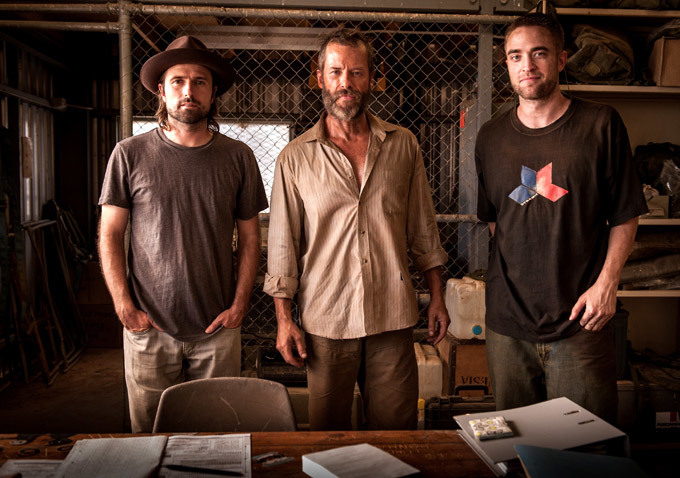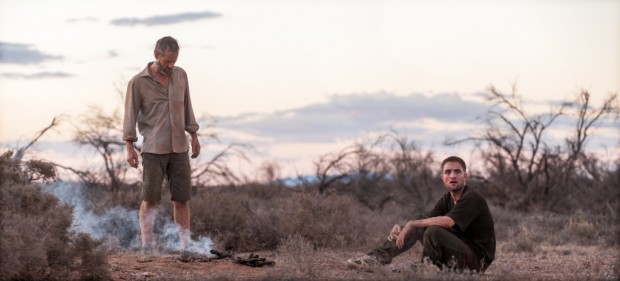
The Rover immediately succeeds in planting one in the downtrodden world it’s created: ten years after an economic collapse and, needless to say, Australia. By keeping the scale small and the minute details abundant, David Michôd effectively sells a barren wasteland full of spare, secluded inhabitants. Leaving the rest of the world’s fate to our own imagination, it’s a far more powerful in approach than anything a fabricated news broadcast or prologue could attempt to convey, I noted in my review.
I recently had the chance to speak with the writer-director on crafting his sophomore feature ahead of a release this weekend. We discussed his choice to make the film, not over-explaining, casting Robert Pattinson, the effects of violence, idiosyncratic music choices, the score, contrasting it from his first feature, what he plans to do next, and much more. Check out the full conversation below.
The Film Stage: Congrats on the movie.
David Michôd: Thank you very much.
I’m curious, how important was it for you to stay in Australia for your sophomore feature? I’m sure you probably got offers to go elsewhere.
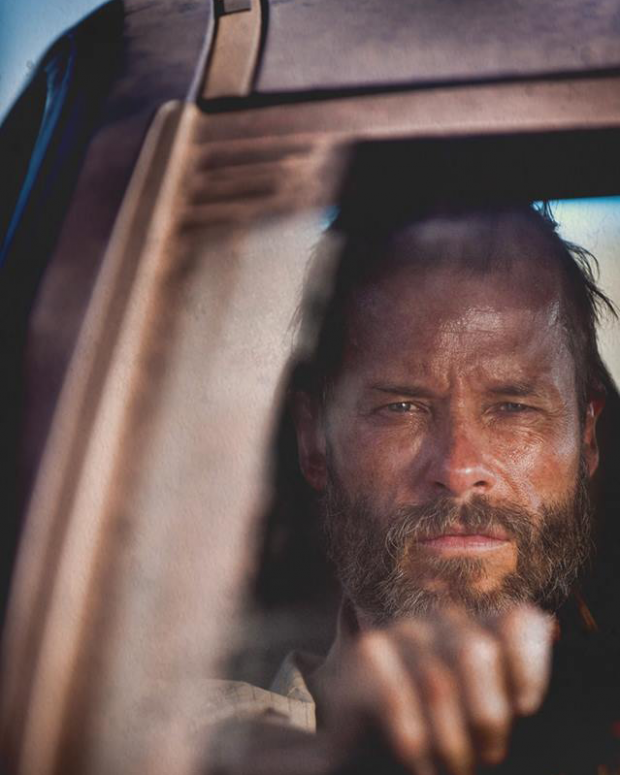 I mean, I don’t know it was necessarily important specifically in Australia. What was most important to me was that I feel A) that the movie was of my own making, something that I had built myself from the ground up and B) that I could control it. On both of those fronts, I had been working on The Rover for awhile already and it seemed to fill both of those. In the couple of years after Animal Kingdom I did a lot of looking at what my options were and there were quite a number of different options available to me. But the more looking at those options and thinking about the things, the more it felt important to me that make a second film that felt entirely of me rather than surrendering myself to someone else’s machine.
I mean, I don’t know it was necessarily important specifically in Australia. What was most important to me was that I feel A) that the movie was of my own making, something that I had built myself from the ground up and B) that I could control it. On both of those fronts, I had been working on The Rover for awhile already and it seemed to fill both of those. In the couple of years after Animal Kingdom I did a lot of looking at what my options were and there were quite a number of different options available to me. But the more looking at those options and thinking about the things, the more it felt important to me that make a second film that felt entirely of me rather than surrendering myself to someone else’s machine.
I really like the setting of this film. There’s a lot of little ideas that you place throughout the movie, but nothing’s over-explained. It’s a great balance and it feels very believable. Can you talk about finding that balance and if you perhaps started with more on the page and then you pared it back?
No, there was never necessarily any more on the page. For me, the challenge was always trying to find the balance of making clear the specificity of the world and the time and not getting bogged down in exposition. I always like the idea, to me far more powerful than showing people explicitly what the nature of the world is giving an audience enough information to fuel their imagination. In a way, for me, the most powerful example of that is the first shot of the movie. Coming after a card that say, “10 years after the collapse” and then just showing a blank landscape to the horizon in the first shot. My hope was always that the power of an audience’s imagination, whatever they were imagining over that horizon would be more powerful than anything I could show them anyway.
Yeah.
Obviously, the risk in being relatively non-specific is that you… I’ve had to answer a lot of questions in the last week about the quote unquote post-apocalyptic nature of the movie. I’ve found myself a lot trying to explain to people that the movie isn’t post-apocalypse, you know. I very deliberately didn’t want it to be post-apocalypse. I didn’t want it to feel like whatever landscape these characters were wandering through was the product of an asteroid or some kind of nuclear holocaust. I wanted it to feel far more real and a product of the forces of evil that are at work around us to.
In this movie and your last there’s definitely a lurking uneasiness. In every scene it feels like something could happen at any moment to keep you on edge and I think it makes the violence all the more impactful compared to so many other features that just willy-nilly just show people getting murdered. In this movie, everything feels like it’s deliberately done and for a reason. When you see a gun you actually get nervous, compared to most action movies today. How important was that aspect to you? To convey that atmosphere?
I don’t feel like I’ve deliberately set out to represent violence in any particular way. I just feel like this is sort of the visceral cinematic experiences that I enjoy. For me violence is just a dramatic tool. Violence, in a way, to the extend that drama in any movie is about an upset in the balance of people, acts of violence are just a very manifestation of that. For me, what’s always most powerful about violence isn’t necessarily the act itself. It’s the effect that it has on people, both before and after the act itself. For me, what’s most powerful about acts of violence is the tension leading up to them and the upheaval of the aftermath.
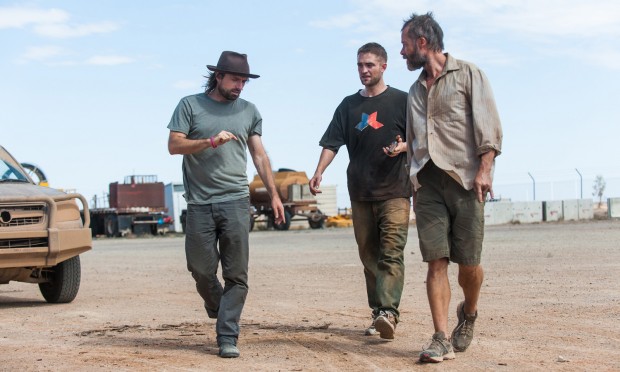
Getting to the casting, Guy Pearce is just so fantastic in this movie. Every glance he has, he conveys so much. I’m curious since Robert Pattinson is such a great counterpart to that. It definitely feels like in the last few years he’s trying to segue into more films like this. When you met him and what he brought to the table, how much was on the page versus the many nuances he brings to his character? What was the process like of casting him?
One of the things I liked about Rob, right from the outset — other than meeting him and just finding him beguiling and fascinating — was that when he came to test for me, he came both with a really beautifully considered and specific reading of the character, but also a full understanding that on the page, the character can be played a hundred different ways. So straight away that said to me that I had in him a collaborator who would help me find the character. I talk about the fact that I kind of tested him over two days for something close to four hours, but I sort of knew that I wanted him in the first five minutes. The other three hours and fifty minutes were him and I exploring the character. He had a lot to contribute on that front.
When he came to Australia about two weeks before we started shooting we had lots of conversation about things that were seemingly cosmetic. Hair cuts and wardrobes say a lot about the character and the character’s backstory and the character’s sense of the world and he had lots of things to say on that front. He was the one who initially agitated to have his monkey haircut. That rationale for it, in a way, was that this was the point of his character. Unlike Guy, this is a kid who still feels like there’s something out there for him and his monkey haircut is his delusional way of styling himself on the off chance that there’s a kind of pretty girl in the next town that he might fall in love with.
The sound design and the score is just incredible. It felt a little bit influenced by There Will Be Blood, Jonny Greenwood’s score. Can you talk about weaving the score into the film and if that was an influence for you at all?
I love that movie, but I wasn’t necessarily influenced by that score. The challenge for me, when you set a movie that’s in some kind of unspecified near-future, the musical choices that you make sort of inform what that future might feel like. I just do a lot of diving down musical rabbit holes all the time and stumble across music that I love. What I’ve discovered is that the ones that appeal to me most, in regards to The Rover, were those kinds of artists like Colin Stetson or William Basinski who were making music with very traditional instruments, but music that felt like it was full of tension and also felt like it was disintegrating. It seemed to fit the world of the movie really beautifully. There’s that sense that William Basinski’s beautiful piano pieces that go on these sort of loops that sustain 20 minutes that literally start to fall apart. On a thematic level, that seemed to fit the world of the movie really beautifully. And then Anthony Partos, who I worked with on Animal Kingdom sort of came in to do three or four cues that were the connecting tissues that the movie needed, very character-specific connecting tissues.
I loved the selection of the Keri Hilson song. It starts as almost a fun idiosyncratic kind of way and then you cut right to Pattinson’s character and it’s sad because it’s part of a life his character will never come back to. Can you talk about using that song and you obviously knew about it beforehand because he sings it in the movie.
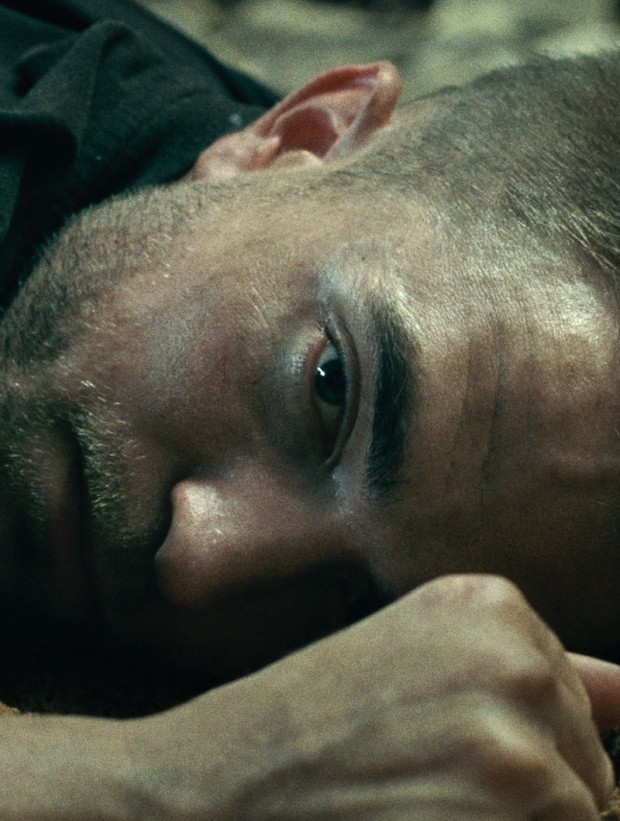 Yeah, the motivation there is not dissimilar to the one I was describing before with regard to his haircut. It’s just a reminder at a particularly crucial point in the movie that this kid is a kid who, unlike Guy’s character, still weirdly has a sense of the world being a place that is still to be explored, that he still has music that he likes. The ways in which those sorts kind of cultural interests feed into your whole sense of your place in the world and perhaps the girls he might meet, all of which is stuff for Guy’s character has just entirely evaporated.
Yeah, the motivation there is not dissimilar to the one I was describing before with regard to his haircut. It’s just a reminder at a particularly crucial point in the movie that this kid is a kid who, unlike Guy’s character, still weirdly has a sense of the world being a place that is still to be explored, that he still has music that he likes. The ways in which those sorts kind of cultural interests feed into your whole sense of your place in the world and perhaps the girls he might meet, all of which is stuff for Guy’s character has just entirely evaporated.
We talked a little bit about this last night, but coming from Animal Kingdom to this, you mentioned how this feels like a smaller-scale movie in a sense. You said you were working on this for awhile, can you talk about the difference in production and what you learned the most from your debut?
Joel Edgerton and I kind of came up with the loose idea for it years before Animal Kingdom and I wrote the first draft of it before I made Animal Kingdom. In the couple of years after Animal Kingdom I was exploring my options and I found myself returning to that script and I found myself doing another couple of drafts. And one of the things I liked about the idea of it of a second movie was that rather than trying to recreate the sort of density and sprawl of Animal Kingdom, The Rover had a far leaner dramatic arc but still in a way for me felt bigger than Animal Kingdom because of the nature of the world of it and the vastness of the landscape. So even though on a certain level the movie is obviously leaner than Animal Kingdom, it was, on a practical level, it was more challenging just because of where we were and how we had to work.
Before we wrap up, you probably can’t talk about it a lot, but you recently became attached to The Operators, and it’s such fantastic source material and working with Plan B, which is such a great company, I’m curious what stage that is at and what attracted you to that project.
Well I’ve always been fascinated by these particular theaters of war that have just been at play for a decade now. There’s something about the machine of it all that fascinates me so you stumble across a book like The Operators and it basically revolves a man at the center of the machine. I always knew it would be a rich scene to mine, but having said that, I have been talking to those guys about it for awhile now, but I haven’t starting writing it yet.
Oh, OK.
So I don’t yet know what form it’s going to do well.
Cool. Well, that’s all I have. That’s all I have. Thank you so much and congrats on the movie.
No problem, thanks Jordan. See you.
Take care.
The Rover opens in limited release on June 13th and expands the following week.

